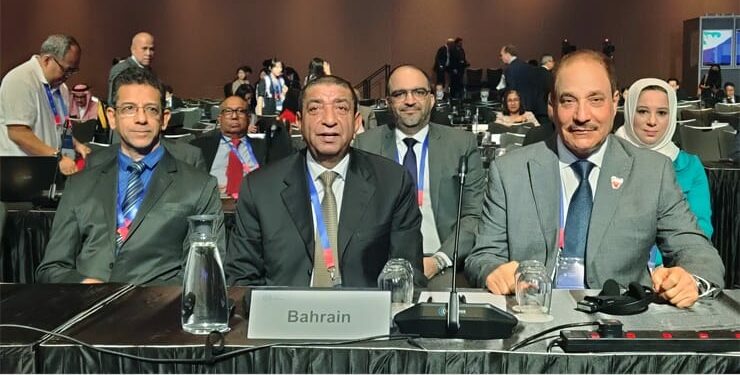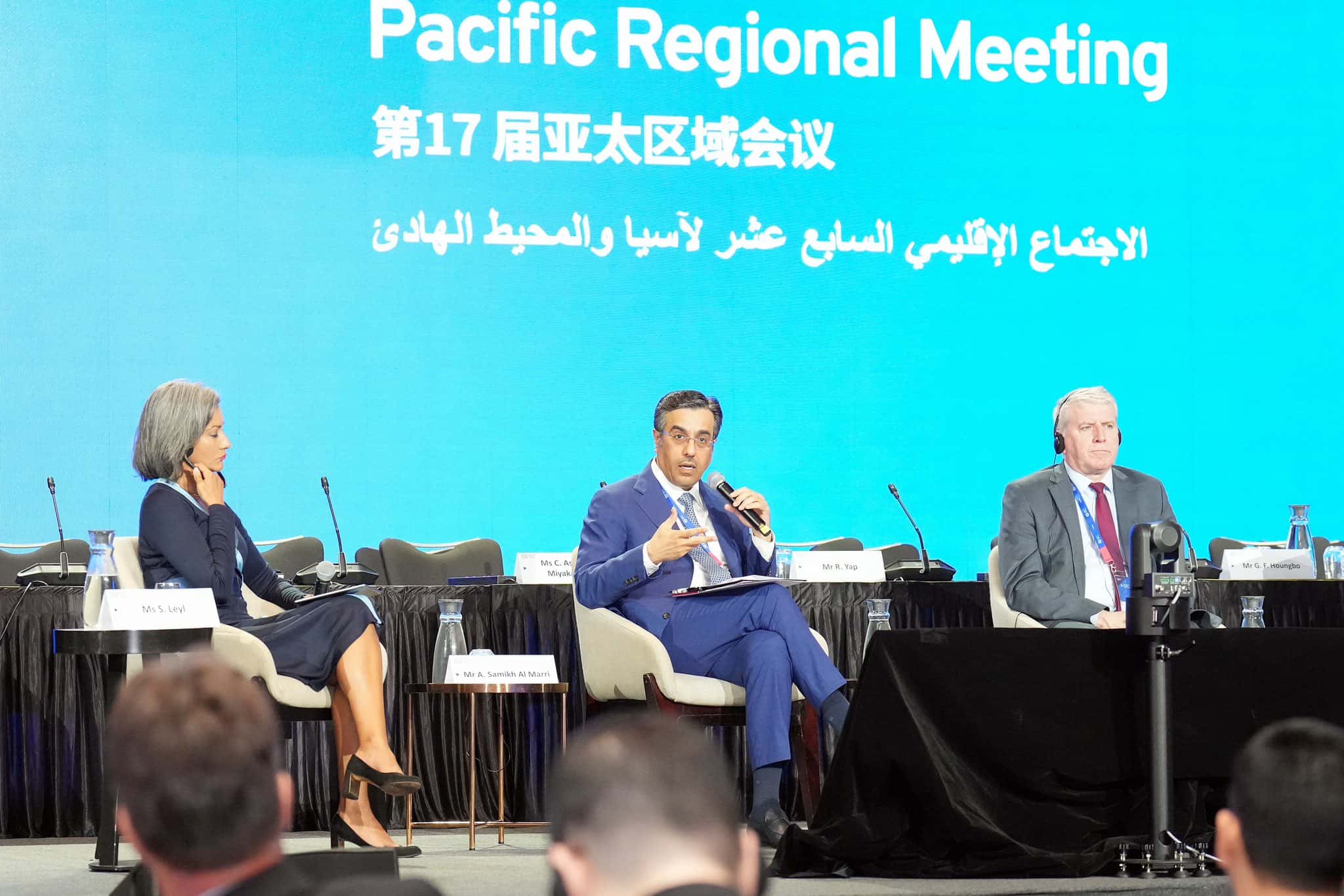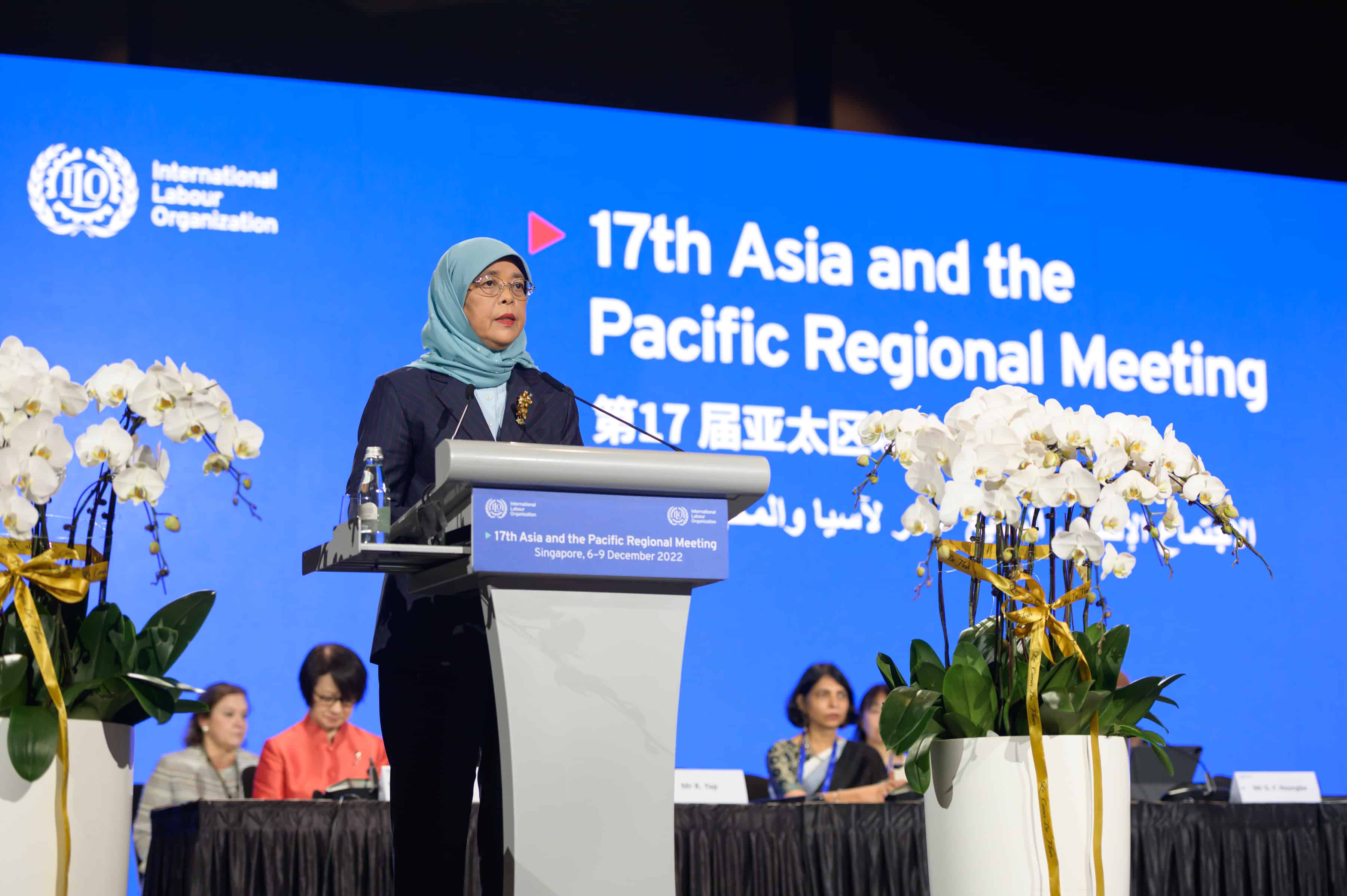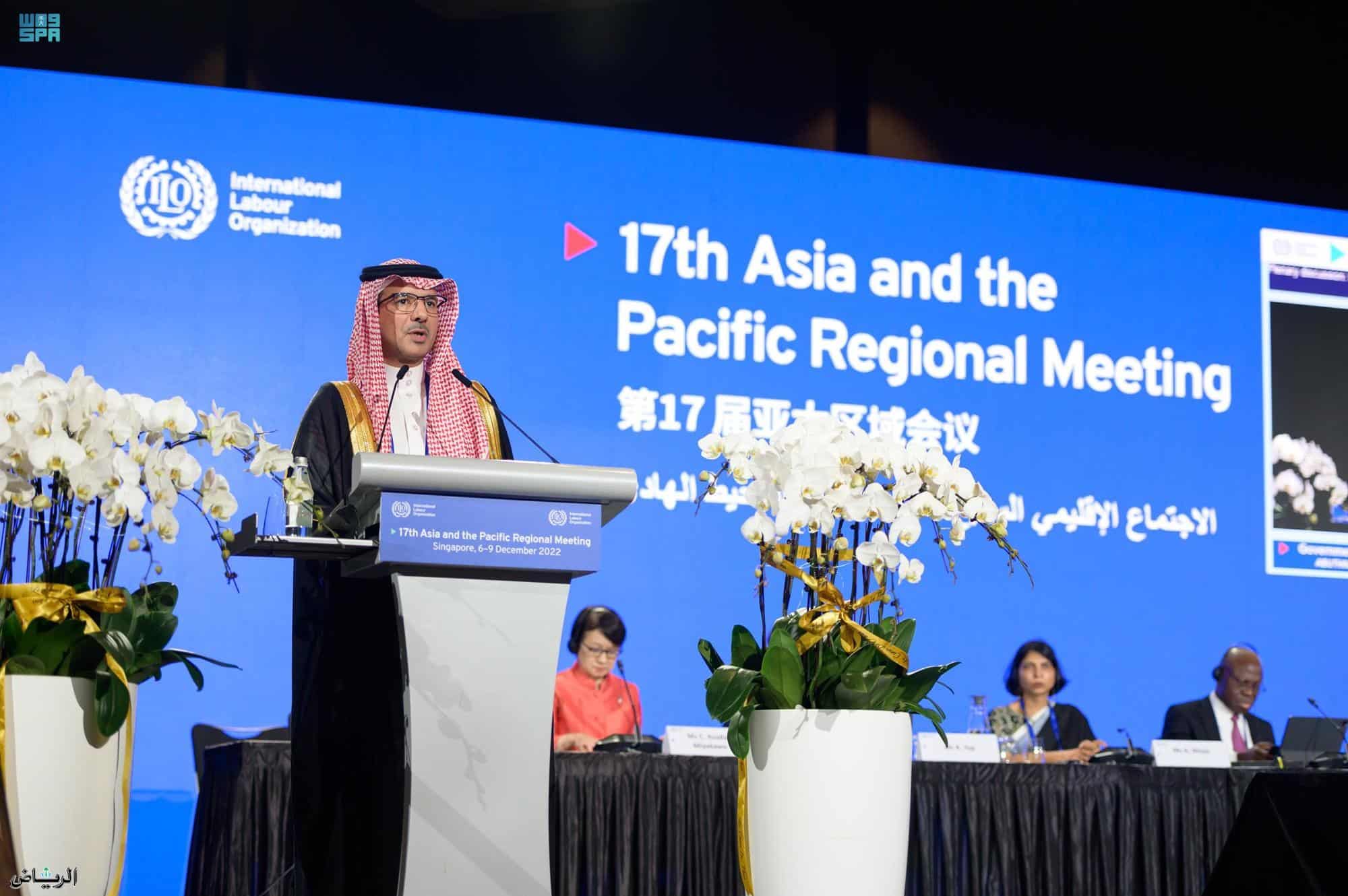SINGAPORE– The GCC countries seek to ensure the implementation of the parties’ rights to the employment relationship, occupational safety and health, and the restriction of any forms of exploitation or practices involving forced labor or human trafficking, said Saudi Vice Minister of Human Resources and Social Development for Labor Dr. Abdullah bin Nasser Abu Thanain.
He was speaking at the 17th Asia and the Pacific Regional Meeting of the International Labor Organization (ILO) in Singapore, which is being attended by labor ministers and state ministers of 19 countries, including United Arab Emirates, Qatar, Japan, India and Bangladesh. In all, about 500 representatives from 33 countries, including the government as well as owners and workers, joined the event.
Also Read Rising inflation, falling wages threaten increased poverty: ILO
The GCC states, Dr. Abdullah said, “established a clear example during the Covid-19 crisis, exerting their maximum efforts to protect all workers without exception or discrimination, assist their return to their home countries, and give immunizations and health care gratis.”
He emphasized that the GCC countries are currently developing, strengthening, and expanding social protection systems in collaboration with ILO, which is represented by the Regional Office for Arab States, especially in light of changing work patterns and the impact of the pandemic.

ILO survey
The event coincided with the release of an ILO survey, which highlighted that one in five workers experienced workplace harassment globally.
The survey – jointly conducted by ILO, Lloyd’s Register Foundation and Gallop — had surveyed some 125,000 people aged 15 and older in 121 nations. It is the first time the ILO investigated the issue of workplace violence and harassment worldwide.
According to the report, 22.8 percent of the respondents said they had experienced bullying at work. The most common type of harassment was psychological violence (17.9 percent).
Also Read ILO says global crises will lead to a fall in labor market
As many as 8.5 percent of the respondents said they experienced physical violence or harassment. Of respondents, 6.3 percent reported facing sexual violence or harassment, with women (8.2 percent) being more exposed than men (5 percent).
The survey also found that workplace violence and harassment are not easily exposed.
According to the report, only 54.4 percent of the victims had disclosed their experiences to someone else, most likely to family members or friends, instead of going public, and often only after they had suffered the violence repeatedly. The common reasons for non-disclosure were “waste of time” and “fear for their reputation.”
The groups most likely to be affected by workplace violence and harassment include young workers aged between 15 and 24 and migrant workers.
Young women and female migrant workers, in particular, were twice as likely as their male counterparts to be exposed to sexual violence at work.
Qatar reforms
Qatar is moving forward in developing economic legislation that reflects a future-exploring vision, through the implementation of its National Vision 2030 and related strategies, the application of international labour standards, and the realization of basic principles and rights at work, said the Gulf country’s Minister of Labor Dr Ali bin Smaikh al-Marri at the ILO event in Singapore.

“Qatar adopted a series of pioneering legislative and institutional reforms in the region, which led to the improvement of working conditions and ensuring a decent living for all laborers, indicating that these reforms included many aspects, the most important of which is the abolition of the sponsorship system, facilitating the job transition process, and providing fair employment through Qatar visa centers, and setting a minimum wage,” he said.
Al Marri, who is heading Qatar’s delegation to the meeting, stated that the Ministry of Labour worked to establish a digital platform for complaints, as the majority of complaints were a result of the delay in the payment of wages and end-of-service benefits. He noted that more than 280,000 workers, or about 13 percent of the total workforce in the private sector, have had their basic wages increased to the minimum wage.
He added that social justice is a basic principle of peaceful coexistence among people, which is what Qatar believes in.
Al Marri stressed that achieving social justice requires the availability of many factors, including: equality, non-discrimination, equal opportunities, and restoring priority to decent work in national, international and multilateral sustainable development strategies, through close co-operation between stakeholders, especially the tripartite bodies that make up the ILO.
Dr al-Marri highlighted that Qatar has taken an effective approach to address the Covid-19 pandemic and its health and economic effects, by taking many measures to ensure social protection for all members of society, noting that this policy mitigated the repercussions of crises and challenges facing the global economy.
Way forward
Addressing the inaugural session of the ILO event as the chief guest, Singapore President Halimah Yacob said, “The pandemic and recent economic upheavals have given us another opportunity to rethink our growth model. The regional meeting of ILO provides us a platform to unite in dialogue to navigate the uncertainties that lie ahead of us.”

She hailed the ILO, saying it plays a critical role in ensuring a fairer and more inclusive growth model where everyone has a stake.
President Halimah Yacob noted that there is no alternative to tripartite dialogue to deal with employment challenges.
She said, “A key reason why we were able to move quickly to address the concerns of companies and workers is because of the high level of trust that exists among the tripartite partners. The three sides have formulated strategies to deal with the challenges and implemented those effectively.”
“In the globalised world where capital can cross borders freely, extreme cost-cutting measures driven by intense competition can result in a race to the bottom for wages and labour standards if left unchecked,” she added.
ILO director general Gilbert Hongbo highlighted in his speech that the political and economic crisis in the wake of the coronavirus and climate change have undermined workers’ social protection.
“More than ever, workers are getting by on informal work, in jobs that provide little in the way of protection and security. We are now living under circumstances when labour standards, employment policies and social protection matter more than ever,” Houngbo said.
The ILO DG also noted that they want everyone to be able to share equally in the benefits of future, human-centred growth. Both the Asia-Pacific and Arab States labour markets have recorded a partial rebound from the impact of Covid-19 yet with conditions expected to remain difficult into 2023 prospects for investment, growth and full labour market recovery remain elusive.

